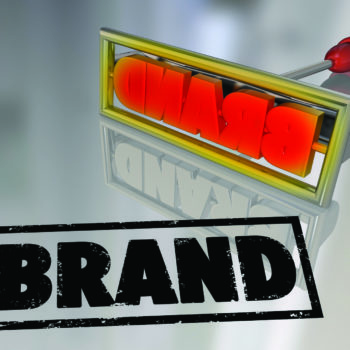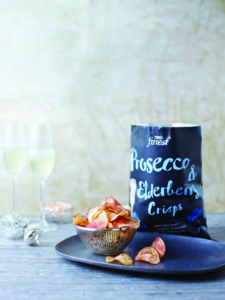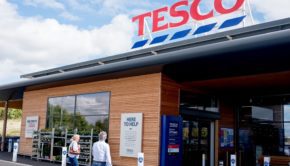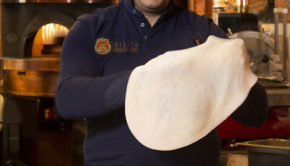Should branded FMCG suppliers also manufacture own label?

Brand-building expert Iwan Williams outlines Part 1 of his take on why caution should be exercised before blurring the lines between own label and branded suppliers
18 May 2016

Iwan Williams
There appears to be growing interest in acquiring own label food manufacturers. I’ve heard this said on numerous occasions of late. This might be a consequence of sky high multiples being paid for branded businesses!
I was recently involved in two sale processes involving own label consumer product producers, one with revenues of around £50m and another of around €300m. Both processes attracted considerable private equity interest and both sold for very healthy EBITDA multiples. These two examples and others I’ve seen in the past 12 months have some common themes worth mentioning.
Common ground
Firstly the product range is generally focused on one particular category. The businesses have concentrated their resources on building capacity, capability and volume growth in clearly defined product groups. Some have promised diversifying into nearby product areas but their historical performances and the basis for healthy valuation multiples have been due to avoiding category diversity! Others have been in a good position due to operating in a category with no branded offering. Close attention to detail and real expertise in all aspects of the particular business, from raw material procurement to customer service, has rewarded the shareholders handsomely.
Secondly, claims of “lowest cost producer” are generally front and centre. This is not a requirement for only producers of own label and care needs to be taken regarding the definition of lowest cost. If all overhead costs are included in the description, then it’s more normal to expect an own label supplier to be benefiting from a lower overall cost base than their branded competitor. In fact their survival depends on it. Own label suppliers simply can’t afford to be wrong in terms of their organisation chart. Excess headcount, untidy roles and responsibility definitions and poor attitudes towards being flexible all simply add inefficiency and unaffordable costs.
Lower costs can be leveraged into more competitive bidding, securing incremental volume, which in turn generates benefits of scale. This virtuous cycle is the basis for long-term competitive advantage and it isn’t easy to achieve or sustain.
Quality considerations

With own label goods such as the Tesco’s Finest range expected to deliver quality, “an own label supplier needs to take very seriously the responsibility of producing products with another company’s name on the label,” writes Iwan Williams
The third element is product quality. An own label supplier needs to take very seriously the responsibility of producing products with another company’s name on the label. Lower price expectations are no excuse for lower quality. The winners in own label agree a product quality specification with their customer and deliver that quality every day.
Finally is the subject of culture. Every single individual in an own label supplier needs to eat, sleep and breathe outstanding customer service. Employee engagement is different as the focus for their passion and enthusiasm about their business is more concentrated on a real spirit of partnership with their retailers. Going the extra mile whenever needed, to make sure that this week’s volume order fill percentage is over 99%.
Culturally, the own label supplier has to be attuned to the customer’s overall growth strategy for the category and be ready, willing and able to invest in product and packaging innovation, often led by their branded competitors.
Opportunities for growth
Undoubtedly branded suppliers also need superb customer service, optimised organisational structures and so on but with higher margins, the fixation on maintaining low headcount isn’t as strong. A growth plan based on building brands brings a whole different level of cost that shouldn’t exist in the own label competitor.
There is always improvements that can be made but assuming the competitive combination of focus, lowest cost, quality and culture are in place, the key question for the investors is where is the growth going to come from? Higher share in the UK is always one possibility but that becomes very difficult if Aldi and Lidl are the next customers on the list. Organic geographical expansion is also an option but a UK-based supplier is generally not going to find it easy to compete with local French or German suppliers.
Acquiring scale in a particular category is probably a more interesting option and there are probably plenty of examples in categories such as frozen complete meals, pet food, soft drinks and fresh produce where that strategy is being played out. On a European basis there are numerous categories where consolidation is a real opportunity, particularly for those suppliers who are already in a good cost position. Co-packing for brands under licence is also a possible route.
Mixed messages
Interestingly in one of the examples quoted above, the high EBITDA multiple paid by the PE investor was being paid for the growth prospects of the strategically sound own label business. However no value was assigned to the rather odd part of the growth plan, which was to grow availability of a small portfolio of B brands. Whilst the argumentation around improving margins was logical, the cost of building brand development capability was absent. Recruiting top-flight marketing talent to manage the expansion into branded ranges is a tough ask if the company has no particular track record or credentials in that type of business. There are no doubt examples of where own label suppliers are attracted and encouraged to create higher margin, premium priced branded ranges based on their category expertise. But imagine the mixed messages to key customers, shareholders, suppliers and employees. Surely in a general context, this is mission impossible?
About Iwan Williams
Iwan Williams is currently building a portfolio of non-executive directorships after a long career leading FMCG businesses and building major brands including: Hovis, Mr Kipling, Oxo, Bisto, Ambrosia, Batchelors, Sharwoods, Loyd Grossman, Pledge, Mr. Muscle, Coca Cola/Sprite/Fanta – in Russia, Schwartz, McCormick, Ducros, Vahine, Newmans Own, Silvo, Amora, Smash and Marvel.
His most senior corporate roles included: managing director, Grocery and Bakery Division, Premier Foods PLC; president EMEA & VP Consumer Division Europe, McCormick & Company Inc.; GM Russia & group marketing director Asia Pacific at The Coca-Cola Company and brand manager to managing director Iberia, Johnson Wax, UK, Germany, Spain. His career began in Cadbury Schweppes, UK.
Williams has experience in all aspects of brand businesses from acquisition to disposal and from turnaround to accelerating growth in the UK and internationally. He is a graduate of The Harvard Programme for Management Development. He is married with two children and lives in Ascot near London.



 Print
Print



Fans 0
Followers